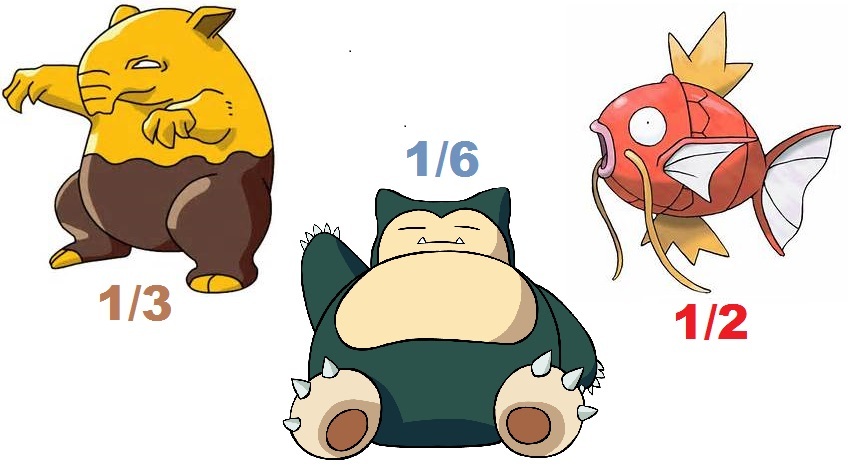Collect all three!

You play a new online game called, "Pokey Mango!" It's a game where you go around collecting strange cartoonish beasts.
Suppose there are only three such beasts in the game, and each beast has the following probability of being found:
- Snorlax 6 1
- Drowzee 3 1
- Magikarp 2 1
The expected total number of beasts you need to collect before you have "Collected them All" (In this case there are only 3 ) is b a where a and b are coprime positive integers. What is a + b ?
Image credit: http://forums.smitegame.com/ , http://nintendo.wikia.com/ , http://www.dltk-kids.com/
The answer is 83.
This section requires Javascript.
You are seeing this because something didn't load right. We suggest you, (a) try
refreshing the page, (b) enabling javascript if it is disabled on your browser and,
finally, (c)
loading the
non-javascript version of this page
. We're sorry about the hassle.
1 solution
Great problem! I haven't seen a coupon collectors problem with unequal probabilities posted on Brilliant before. There is a nice general solution for n "beasts", (or coupons, etc.), with probabilities p 1 , p 2 , . . . , p n , such that
E = ∫ 0 ∞ ( 1 − k = 1 ∏ n ( 1 − e − p k x ) ) d x .
Log in to reply
Whoa.... Cool answer @Brian Charlesworth ! I hadn't seen that one before!
Define the following:
(e.g. E 2 3 = Expected value of getting all three once you have 2 and 3 )
Finally, let 6 represent the Snorlax, 3 represent the Drowzee, and 2 represent the Magikarp.
This leads to the following set of linear equations:
Solving these, we find that E = 1 0 7 3
7 3 + 1 0 = 8 3